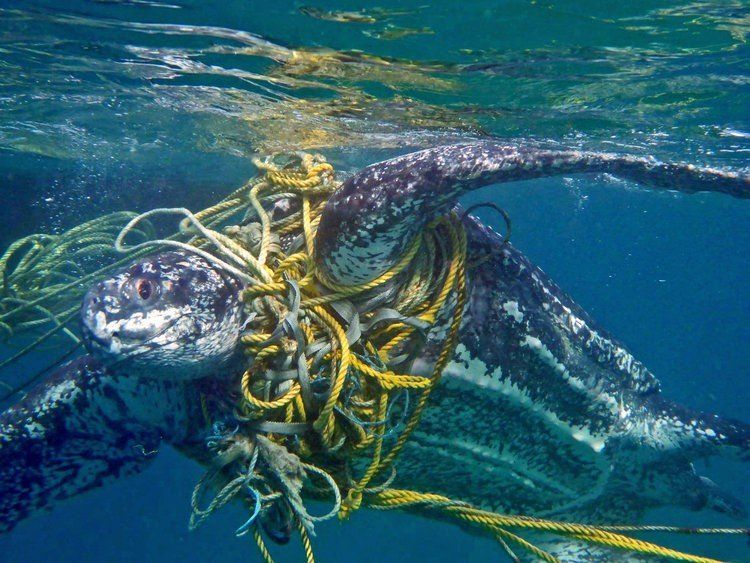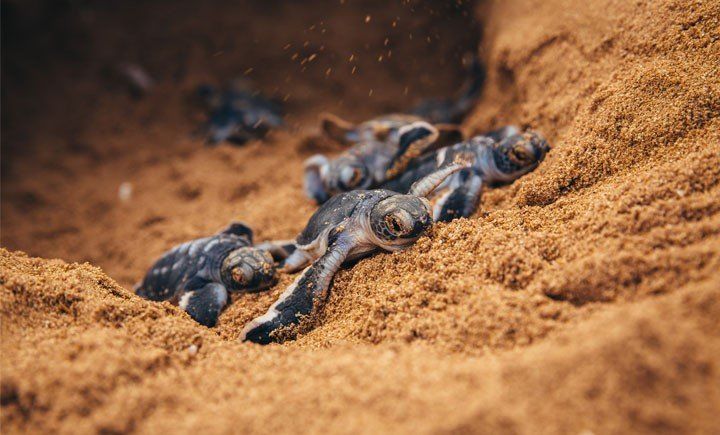World Sea Turtle Day- Threats to Sea Turtles!
For over 100 million years, since dinosaurs roamed the land, sea turtles have been living in our oceans! They are excellent mariners and migrate thousands of kilometres every year between their nesting and feeding grounds. Sea turtles are found in most oceans, apart from the cold polar seas, and utilise a wide range of marine habitats such as beaches, near shore habitats like coral reefs and seagrass, and the open ocean. These amazing creatures are essential predators and help to keep the ocean food chain healthy and in balance. However, in recent history, rapidly increasing human populations have put greater pressures on sea turtles, putting their survival under threat. Almost all species of sea turtle are classified as being endangered with some of them being classified as critically endangered (WWF, 2020).
Sea turtles have always had natural threats to overcome, but as a species they have been very successful. It is the human impacts, both direct and indirect, which have caused them to become endangered worldwide. The IUCN has identified the 5 main threats that they face.
Pollution in the marine environment is a growing issue and sea turtles are at significant risk from entanglement in marine debris and ingestion of plastics and chemically polluted waters. Plastic has been found in every ocean in the world and marine creatures cannot escape from it. Given the scale of the plastic problem, and sea turtles wide habitat use, it is not surprising that they regularly come into contact. Sea turtles often mistake plastic and other pollutants for food and ingested marine debris has been found in a shocking 91% of pelagic sea turtles (Clukey et al., 2017). Entanglement in ghost (discarded) nets and lines is another cause of death for turtles. It prevents them from surfacing and can cause them to drown. On top of that, sea turtles often find themselves in chemically polluted waters from coastal developments, industrial waste and agriculture which has a negative impact on them and their habitat. Issues are also present on land because heavily littered beaches can cause problems for mother turtles to lay their eggs and is an added obstacle for hatchlings to navigate before they reach the safety of the ocean.
Climate change is the greatest environmental challenge the world has ever faced, so of course it is also having a negative impact on sea turtles. Scientists are only just learning the extent to which climate change may impact them but, even with the facts we already know, it appears that it could threaten the long-term survival of populations. The sex of a turtle hatchling is determined by the temperature of its nest (warm temperatures produce female and cooler temperatures produce males), so climate change will alter the natural sex ratios of hatchlings. Sea level rise is also a problems as it cause more intense storms which damage and wash away important nesting beaches and coral reefs.
Fisheries contribute to the death of thousands to tens of thousands of sea turtles each year. Turtles that become trapped in longlines, gill nets and trawls are thrown away as by-catch. Those that manage to avoid fishing nets are impacted by the disruption to their food supply and habitat loss.
Coastal developments are an increasing problem as populations and tourism grow in coastal areas. New developments degrade and destroy sea turtle’s habitats and prevent them from accessing their nesting beaches.
Direct take , although illegal in most countries, is still a major problem. Sea turtles and their eggs are killed for food and for valuable products such as leather, oil, and their shells. A lack of enforcement, punishment and public awareness is particularly problematic.
The mitigation of human impacts on sea turtles is still in its infancy. There are gaps in our knowledge and further research is required in order to implement the most effective conservation methods. Greater public awareness and support for sea turtle conservation is a priority. It is important for more people to be aware of the threats that we impose on sea turtles so we can work together to save this now endangered species.
This World Sea Turtle Day why don’t you make a promise to reduce your plastic use and do your small part to help?
References:
WWF. 2020. Marine Turtles: Earth’s Ancient Mariners. Available at: https://www.wwf.org.uk/learn/wildlife/marine-turtles (Accessed 11/06/20)
WWF. 2018. World Sea Turtle Day. Available at: https://www.wwf.org.uk/updates/world-sea-turtle-day
(Accessed 11/06/20)
SHARE THIS ARTICLE















